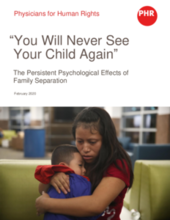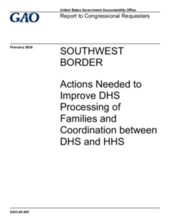Displaying 251 - 260 of 839
This case explores the complex ways unaccompanied Latinx Indigenous minors experience the intersection of immigration policies and U.S. school policies and practices and the implications this has for school leaders.
Identifying different domains and dimensions of children’s well-being and touching upon its multifaceted nature, this study presents an alternative framework, showing how the quality of the reception path for unaccompanied minors is fundamental to having successful results throughout the entire integration process.
In respect of international migration by children and adolescents, the aims of this chapter are: (1) to present the main trends of migratory dynamics before and during the economic crisis in Spain, migrant children in the educational system, and their career expectations as they become adults; and (2) to analyse local policies towards reunified children in Madrid and Barcelona.
This report from Physicians for Human Rights (PHR) presents findings from an investigation based on psychological evaluations of asylum-seeking parents and children who were separated by the U.S. government in 2018. The investigation found pervasive symptoms and behaviors consistent with trauma, particularly the trauma of family separation.
This report examines (1) U.S. Customs and Border Protection (CBP) data on apprehended family unit members; the extent to which (2) CBP and (3) the U.S. Immigration and Customs Enforcement (ICE) developed and implemented policies and procedures for processing family units; and (4) how the Department of Homeland Security (DHS) and the Department of Health and Human Services (HHS) share information about unaccompanied alien children (UAC).
This article from the Lancet explores parental migration and its effect on children who are left behind in the context of Sub-Saharan Africa.
This study zeroes in on the issue of left-behind children and draws on data from the China Family Panel Studies surveys to examine the impacts of parental absence on child development in psychological, physical and cognitive domains.
This study aimed to investigate the impact of previous maternal migration experiences on left-behind children’s (LBC) mental health status and suicidal ideation, and the possible mediating role of parent-child communication.
This article explores age assessment methods used in estimating legal age or minor status of migrants and the need to minimize false positives with the aim of avoiding mistaken classification of a minor as of legal age.
The aim of this study is to explore how the social workers employed at a non-governmental organisation mentoring programme construct young migrants’ situations in kinship care in a Swedish suburb, and if and how these constructions change during the course of the programme.


